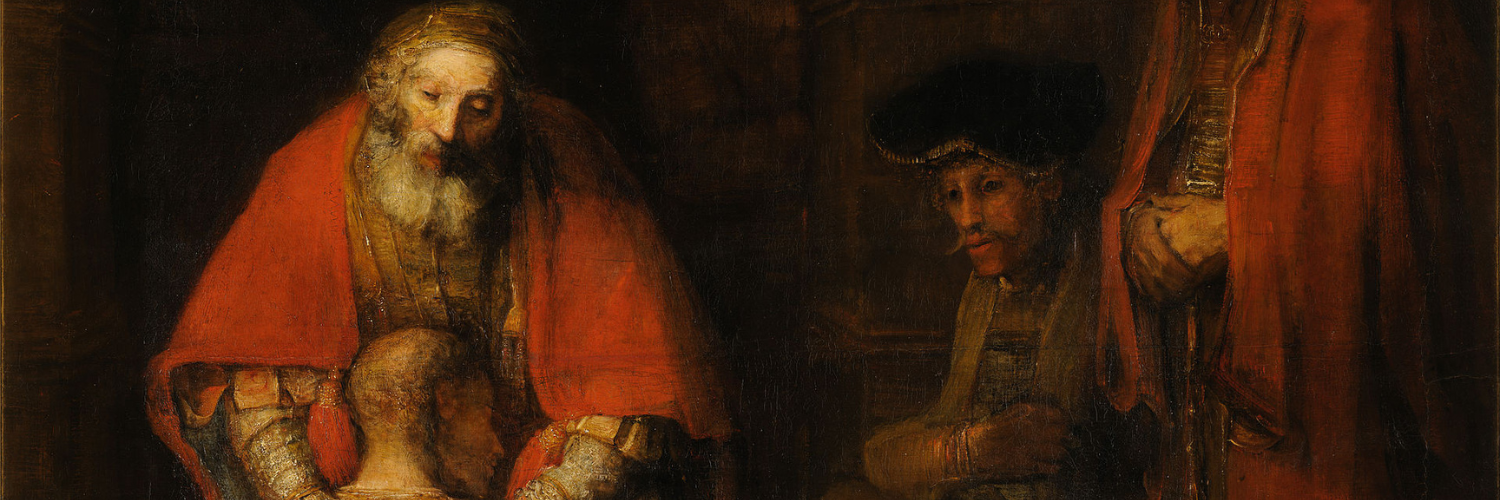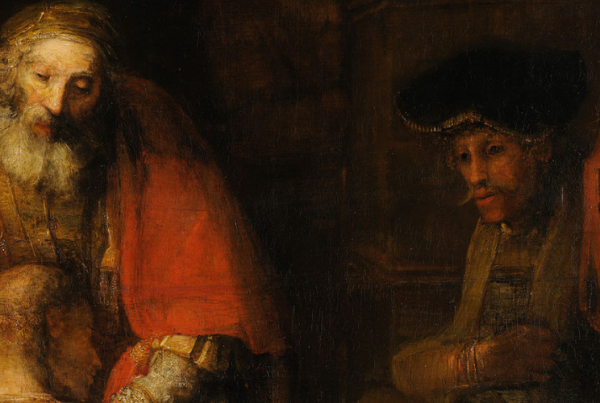
God Can't Just
Forgive and Forget
Fr. Paul Stein
Have you ever wondered, why did Jesus have to suffer and die to save us from sin? Why didn’t God just forgive and forget? Jesus’ passion, death, and resurrection were necessary to save us, not because God is petty and demands sacrifice as though he were a spoiled child. They were necessary because sin does real damage; that damage had to be undone. To put it another way: the wounds of sin and death had to be salved/healed [1].
Sometimes, people imagine that God’s laws are mere contrivance; meaning, that God simply made up some rules ad hoc, somewhat in the manner in which people make up rules for a new game. There is no absolute reason why there must be three outs to a team in an inning of baseball; there can just as easily be four or five. In the United States, we drive on the right-hand side of the road, whereas in England they drive on the left.
In contrast, the moral law is intrinsic to our human nature. When we sin, we harm our being. For example, when a person tells a lie, his conscience will boldly “yell,” that is wrong, and that he should not lie. If he lies again, and then again frequently, his consciences becomes more and more muted. At the extreme, a person who habitually lies has a significantly dulled conscience and can lie without thinking about it much if at all [2]. Lying has become, “second nature.”
In the Church, “human nature” means humanity as it can be defined. To be human means to be the unity of body and soul, created in the image and likeness of God. It means to be capable of rational thought and possessing free will, even if we don’t always use our free will, or even use it properly. It ultimately refers to God’s intent in how he created us, no matter how much we have been wounded by original sin.
It is always important to remember that we are wounded by original sin, thus we don’t always act or desire things in accord with our human nature. Thus statements like, “lying is part of human nature” doesn’t mean that it is part of human nature. Lying may be common, but it is not part of our nature.
For that reason, the phrase “natural law” is different than the cultural phrase, “the law of nature.” The law of nature is simply how the world works as we currently find it; it can encompass the law of the jungle, survival of the fittest, and anything else humans happen to do with their survival or betterment in mind.

Natural law is the interior structure of what it means to be human, according to the plan of our Creator; that law doesn’t change even when we behave contrary to it.
For example, if this author were to design and build a laptop from scratch, and give it to someone with the instruction: it is a gift; just don’t take it in the bathtub. Would such a “law” be an imposition? Would it be a mere rule written on paper? To the contrary, the very intention, design, and nature of a laptop means that it was never meant to be immersed in water. To do so would destroy the laptop and injure the user. (The amount of voltage would be insufficient to kill the user; however, taking a high-wattage lamp in the bathtub probably would.)
Generally speaking, the moral law is the natural law; God didn’t make up rules ad hoc; he explains how to use the gift of our human lives, and is built into our very being. To violate the law is to harm ourselves. We may be tempted to think that our sins don’t do real harm, but have you ever tried to not gossip? Imagine if there was an LCD monitor magically floating above your head 24/7 broadcasting every thought you have: would you be rather embarrassed?
Original sin did damage to our human nature; so too do the personal sins we commit. We are wounded, and thus, to truly be made whole and ready to be united with God and one another forever in heaven, God needs to heal us. For that reason, the popular imagery of God is incorrect: he is not keeping a checklist of all our good and evil deeds in separate columns like a lawyer, only to compare the totals at the end of our life. That is not how we will be judged. God is more like the divine physician who sees every wound that needs healing.
The word salvation comes from the word salve; we need his healing ointment. For that reason, God cannot just “forgive and forget,” for we would still be deeply wounded.
God is more like the divine physician
who sees every wound that needs healing.
What This Means For Us
While we might prefer for God to “forgive and forget,” it is good news that he does not. Otherwise, if he did grant us everlasting life in heaven, we would be perpetually wounded and incapable of living in peace and harmony with him and one another forever. Rather, we can better appreciate the God who so loves us, that he would go to extremes, becoming human in Jesus Christ to suffer and die on a cross to salve us. We can also better appreciate Purgatory as a gift to those who are not going to hell, but are still in need of healing, even after death.
Footnotes
[1] Salve: to soothe
Definition from Oxford Languages
[2] Insert a joke here about such people entering politics…
For Further Reading On This Topic



